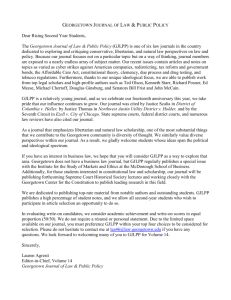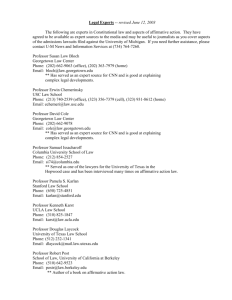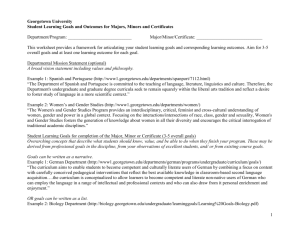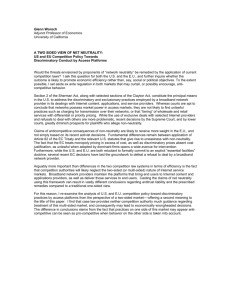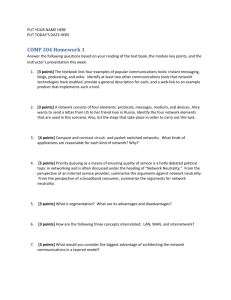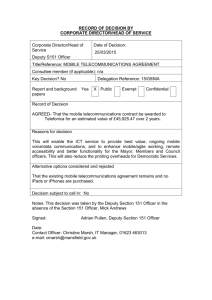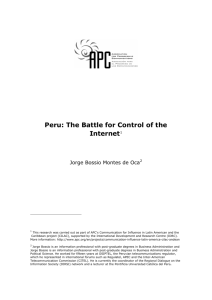Benchmark Regulation in a Global Telecommunications Industry:
advertisement
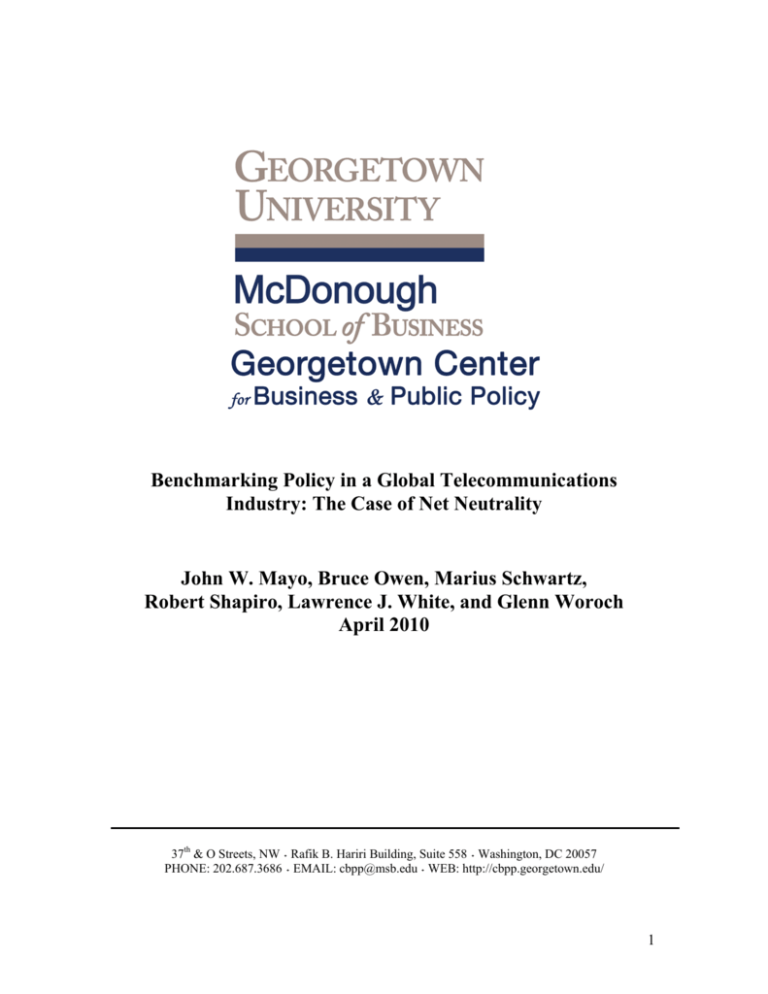
Benchmarking Policy in a Global Telecommunications Industry: The Case of Net Neutrality John W. Mayo, Bruce Owen, Marius Schwartz, Robert Shapiro, Lawrence J. White, and Glenn Woroch April 2010 37th & O Streets, NW ޣ5DILN%+DULUL%Xilding, Suite 558 ޣ:DVKLQJWRQ'& PHONE: 202.687.3686 (ޣ0$,/FESS#PVEHGXޣ:(%KWWSFESSJHRUJHWRZQHGX 1 Benchmarking Policy in a Global Telecommunications Industry: The Case of Net Neutrality* by John W. Mayo 1, Bruce Owen 2, Marius Schwartz 3, Robert Shapiro 4, Lawrence J. White 5 and Glenn Woroch 6 While debates over net neutrality regulation are boiling over in the United States, it may be instructive to take a lesson from European regulators. After lengthy consideration, the European Union (EU) institutions (the European Parliament, Council and Commission – and most importantly, the “Council of Telecoms Ministers”) moved last November to avoid some of the more extreme and economically destructive versions of net neutrality regulation that have been proposed; the EU instead opted for a more measured approach. Specifically, the EU adopted a regulatory approach toward the industry that is largely directed at promoting transparency rather than imposing ex ante regulatory measures that could stifle the technological and organizational innovation that has been the hallmark of the Internet and telecommunications. Under the European regulations, providers will be required to inform customers of any limitations that they impose on access, or on the use of services and applications [including bandwidth caps]. Such information disclosure regulation typically inflicts * An abridged version of this Economic Policy Vignette appeared as a New York Times Op-Ed (p. A-25) on April 21 under the title “”How to Regulate the Internet Tap.” 1 Georgetown University; Professor of Economics, Business and Public Policy, McDonough School of Business, and Executive Director, The Georgetown Center for Business and Public Policy 2 Stanford University; Morris M. Doyle Professor in Public Policy, and Gordon Cain Senior Fellow, SIEPR 3 Georgetown University; Professor of Economics 4 Georgetown University; Senior Policy Fellow, The Georgetown Center for Business and Public Policy and Chairman, Sonecon, LLC 5 New York University; Arthur E. Imperatore Professor of Economics, Leonard N. Stern School of Business 6 University of California, Berkeley; Adjunct Professor of Economics, and Executive Director, Center for Research on Telecommunications Policy 2 relatively low costs on providers and creates the prospect for markedly more informed decisionmaking by consumers. Similarly, under the new European regulation, providers will have to notify customers of any protocols that they use to measure or shape traffic patterns in response to network congestion, along with providing information on how those protocols may affect service quality. The directive also requires carriers to notify users of security breaches that could jeopardize their privacy. Again, such information disclosure is broadly supported by economists because it can contribute to informed decisionmaking and smoother, more efficient market performance. While the European directive also grants the various European states the authority to establish minimum quality-of-service requirements to prevent service degradation, it has, importantly, not required this more hands-on regulation. Indeed, the EU has explicitly acknowledged the efficiency-enhancing properties of price and quality discrimination while at the same time condemning discrimination that serves anticompetitive purposes. As such, individual countries will be left to deal with the merits and costs of such regulation on a case-by-case basis. However, if individual countries go too far in imposing more intrusive regulations, the European Commission retains authority to intervene to maintain a common regulatory framework and a consistent internal market within the EU. Perhaps most noteworthy about the European regulatory framework is what it does not do. The EU has avoided imposing any new regulatory requirements that prescribe and proscribe business or pricing models for European telecommunications companies. This represents a vote of confidence regarding the effectiveness of its extant competition policy and the resulting evolution of pricing and investment in the industry. 3 This, of course, does not mean that European regulators have turned a deaf ear to any potential anticompetitive complaints. Rather, the EU institutions appear to have concluded that any such anticompetitive concerns are better dealt with under existing competition statutes than the imposition of new regulatory mandates and restrictions. As U.S. policymakers are considering their regulatory options, they would be well-served to consider the benchmark recently established by the Europeans. The detailed versions of any such new U.S. disclosure regulation should necessarily evolve through a deliberative process involving regulators, the public and affected companies. The goal, however, should be to construct a common, industry-wide disclosure that provides consumers with easy-to-interpret information on any company-based limitations on access, use of services, or applications. Similarly, clear disclosures of any companybased protocols to shape traffic in response to network congestion can be fashioned. These disclosure requirements hold the promise of complementing and enhancing market efficiency and would be far less onerous than more overt net neutrality regulations that would restrict the evolution of this dynamic market. 4

